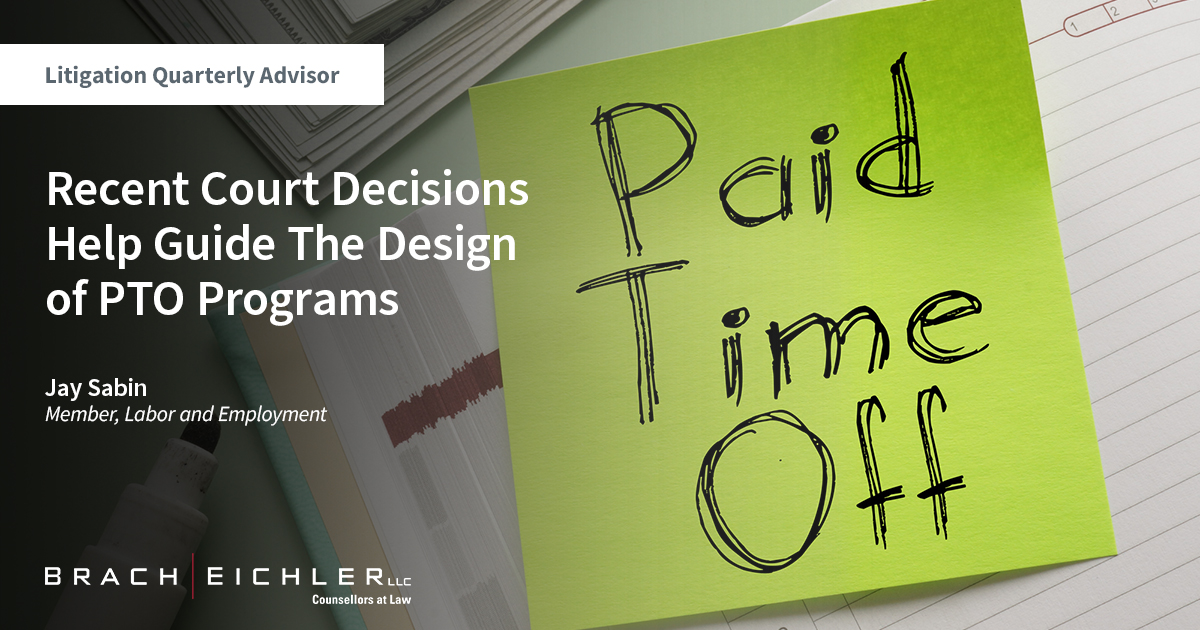Recent Court Decisions Help Guide The Design Of PTO Programs

July 10, 2023
Two recent court decisions should provide New Jersey employers with greater legal comfort about their employee paid time off programs. Employers voluntarily adopt these programs – for vacation or illness or other leaves like jury duty and bereavement – as part of a total rewards package to recruit and retain talent. (Some paid time off is required by the New Jersey Earned Sick and Safe Leave Law and these two cases did not address state-mandated paid leave.) What employers don’t expect is to be penalized for having these programs. Surprisingly, however, the law had been relatively unsettled about the enforceability of such programs and there continues to be some risk even after these decisions that all employers should consider in connection with these programs.
The issue in both of these cases was whether paid time off (PTO) were “wages.” In one case, the question arose under the New Jersey Wage Payment Law. If PTO were wages and if an employer did not pay out to an employee all earned PTO at the end of employment, then the employer would have violated the New Jersey Wage Payment Law. In the other case, the question arose under federal wage and hour law (i.e., the Fair Labor Standards Act). If PTO were wages and if an employer reduced a salaried employee’s amount of PTO based upon performance or hours worked, then there would have been an improper reduction in the employee’s base salary thereby making the employee retroactively eligible for overtime.












